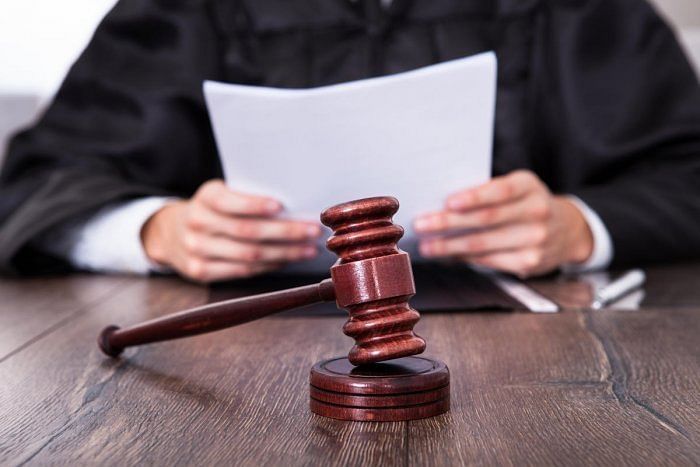
A trial court in Gujarat while acquitting 35 people from four cases related to 2002 post-Godhra riots remarked that the accused, many of them doctor, professor, teacher and businessmen had to "unnecessarily face prolonged trial due to uproar of pseudo-secular media and organization."
The judge has also opined that the "Godhra riots were spontaneous set of riots and not planned as described by pseudo-secular persons."
Concluding that "the prosecution can not succeed as it has not substantially proved the very story it alleged", the judge has quoted educationist K M Munshi saying, "If every time there is inter-communal conflict, the majority is blamed regardless of merits of the question. The spring of traditional tolerance will dry up." The judge has described Munshi as a "prominent Gujarati author and once great Congress leader."
Also Read | Criticising the courts
On June 12, additional sessions judge Harsh Balkrishna Trivedi, Halol court in Panchmahal district, pronounced the judgement in four cases which were tried together against a total of 35 accused. When the trial started nearly twenty years ago, there 52 accused of which 17 were abated following their deaths during the pendency.
The accused were charged for murder and rioting, arson, unlawful assembly, arms act, among other offences for killing three persons-Ruhul Amin Padva, Harun Abdulsattar Tasiya and Yusuf Ibrahim Shaikh. They were all killed at different places. The body of Tasiya, who was burnt alive, was never recovered and the judgement states that police couldn't have proceeded against the accused in absence of "a body ( Corpus delicti ) or at least a body of evidence."
"In the present case the Prosecutor unnecessarily prolonged the case by calling as many as (130) witnesses. In our country the standard of truth amongst the population is very low. In this case testimonies of almost all witnesses revealed to be wholly unreliable," the judgement says, adding that the testimonies were full of contradiction, improvement and hearsey.
The 36-page judgement starts with a commentary on how communal violence in India is not a new phenomenon.
"Communal riots in India have persisted for long times and are usually caused by the trifle dispute and intolerance, manipulation of religious artifacts, intrusion by others on festivals, conflicting prayer time, dispute over places of worship, intermarriage, desecration of holy places, sexual offences rumors on issue of encroachments or the presence of anti India agents," the additional judge has opined.
He, then, describes in detail how coach S-6 of Sabarmati Express train was burnt at Godhra railway station killing 59 passengers and goes on to say, "Peace loving Gujarati people was (sic) shocked and became anguished by this incident. We have seen that then pseudo - secular media and politicians rubbed salt into wound of anguished people. Report says that sixteen of Gujarat's 24 Districts were engulfed in communal rioting - post Godhra riots. Nowhere mobs were less than 2- 3000, more. Often they were more than 5-10,000 strong. There were spontaneous set of riots in Gujarat. They were not planned one, as described by pseudo-secular persons."